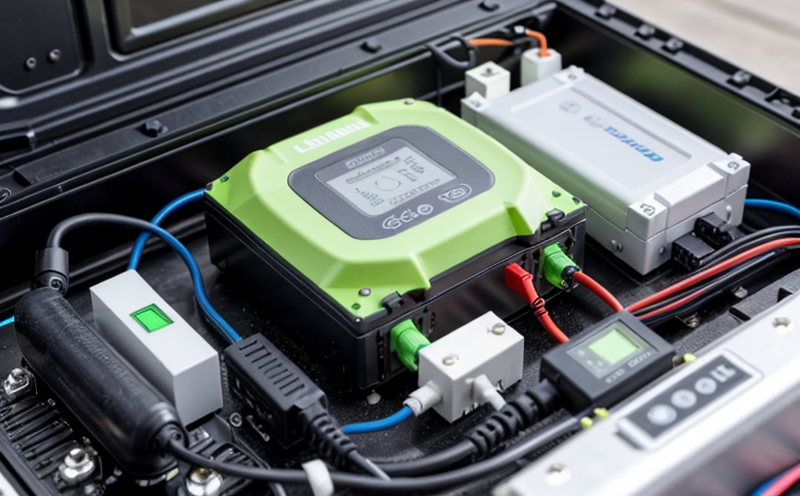ASTM E2981 Lithium-Ion Button Cell Testing for Consumer Applications
The ASTM E2981 standard provides a comprehensive framework for testing lithium-ion button cells used in consumer applications. These batteries are integral to numerous electronic devices including smartphones, digital cameras, and portable medical equipment. This service ensures that the battery performance meets stringent quality standards which is critical for both safety and reliability.
Lithium-ion button cells have become ubiquitous due to their high energy density and long cycle life. However, these advantages come with risks if not properly tested. ASTM E2981 focuses on several key tests including capacity retention under various conditions, thermal stability, and electrical performance checks. By adhering to this standard, manufacturers can ensure that their products meet the highest industry standards.
The testing process involves multiple stages where each step is designed to simulate real-world usage scenarios. For instance, during high-temperature storage tests, batteries are exposed to temperatures above 45°C for extended periods to assess thermal stability. Similarly, charge-discharge cycles test how well a battery can retain its capacity over repeated use.
Quality managers and compliance officers play crucial roles in ensuring adherence to these standards. They rely on precise data from testing laboratories like ours which provide accurate results using state-of-the-art equipment. This not only helps maintain product integrity but also enhances brand reputation by demonstrating commitment to safety and quality.
R&D engineers benefit greatly from this service as it allows them to innovate within established parameters set forth by international standards. They can experiment with new designs while knowing that they must pass rigorous tests before reaching the market. Procurement teams too find value in this service since reliable suppliers are easier to identify when there's a consistent quality standard.
Overall, ASTM E2981 Lithium-Ion Button Cell Testing ensures that consumer electronics meet both technical requirements and safety expectations. It supports continuous improvement by providing actionable insights into how batteries behave under different conditions.
Why It Matters
The significance of ASTM E2981 cannot be overstated for several reasons:
Battery performance directly impacts user experience. Poorly performing or unsafe batteries can lead to device failures, which could compromise user safety.
Compliance with international standards like ASTM E2981 helps protect brands from recalls and legal actions due to product defects.
This testing ensures that the batteries are reliable across diverse environments, enhancing consumer trust in products.
The stakes are high when dealing with lithium-ion button cells. Any failure can result in severe consequences ranging from minor inconveniences to major safety issues. Therefore, thorough testing is not just recommended but essential for any manufacturer aiming to produce top-notch consumer electronics.
Benefits
Enhances product reliability and extends battery life through rigorous performance checks.
Complies with international standards, ensuring global market access.
Provides detailed reports that serve as valuable data points for R&D purposes.
Reduces the risk of recall by identifying potential issues early in the development process.
Supports continuous quality improvement through regular testing and analysis.
Builds consumer confidence, fostering brand loyalty and trust.
Beyond these direct benefits, ASTM E2981 also contributes to broader industry standards, promoting a safer environment for all users of lithium-ion button cell devices.
Competitive Advantage and Market Impact
Adhering to ASTM E2981 can give businesses significant competitive advantages. Firstly, it ensures that products meet the highest quality standards, setting them apart from competitors who may not have invested in such thorough testing.
Secondly, compliance with international standards like this one opens up markets where local regulations require adherence to specific testing protocols. This is particularly important for global brands looking to tap into new regions.
Thirdly, the detailed reports generated during ASTM E2981 tests provide insights that can inform strategic decisions about product development and marketing strategies. For instance, knowing how a particular design performs under certain conditions allows companies to tailor their messaging around those strengths effectively.
In addition to these benefits, there's an intangible advantage in terms of reputation building. Companies that demonstrate a commitment to safety and quality through rigorous testing like ASTM E2981 are likely viewed more favorably by consumers and investors alike.





